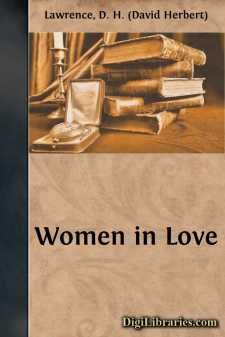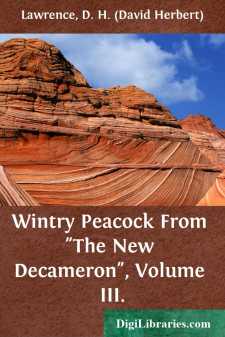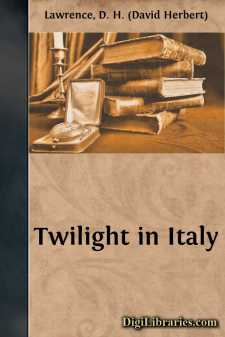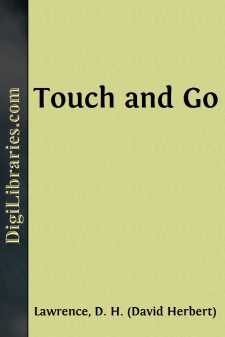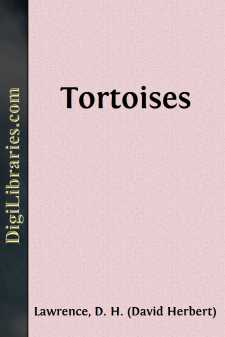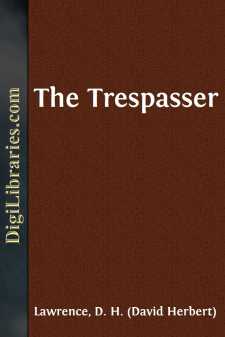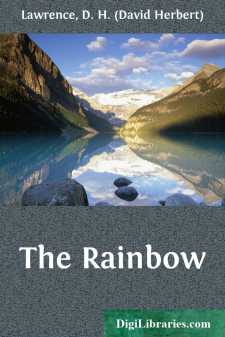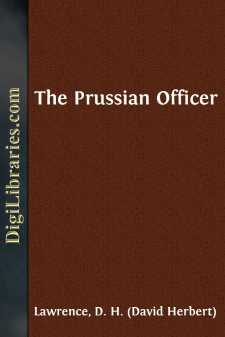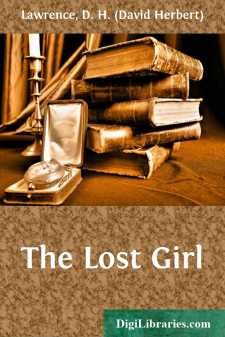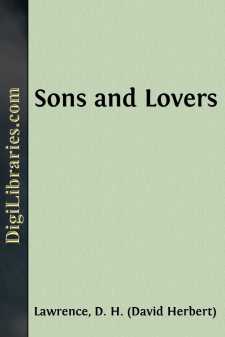Categories
- Antiques & Collectibles 13
- Architecture 36
- Art 48
- Bibles 22
- Biography & Autobiography 813
- Body, Mind & Spirit 142
- Business & Economics 28
- Children's Books 17
- Children's Fiction 14
- Computers 4
- Cooking 94
- Crafts & Hobbies 4
- Drama 346
- Education 46
- Family & Relationships 57
- Fiction 11829
- Games 19
- Gardening 17
- Health & Fitness 34
- History 1377
- House & Home 1
- Humor 147
- Juvenile Fiction 1873
- Juvenile Nonfiction 202
- Language Arts & Disciplines 88
- Law 16
- Literary Collections 686
- Literary Criticism 179
- Mathematics 13
- Medical 41
- Music 40
- Nature 179
- Non-Classifiable 1768
- Performing Arts 7
- Periodicals 1453
- Philosophy 64
- Photography 2
- Poetry 896
- Political Science 203
- Psychology 42
- Reference 154
- Religion 513
- Science 126
- Self-Help 84
- Social Science 81
- Sports & Recreation 34
- Study Aids 3
- Technology & Engineering 59
- Transportation 23
- Travel 463
- True Crime 29
D. H. (David Herbert) Lawrence
David Herbert Lawrence (1885-1930) was an English novelist, poet, essayist, and critic, known for his profound explorations of human emotions, sexuality, and modernity. His most famous works include "Sons and Lovers," "The Rainbow," and "Lady Chatterley's Lover," which challenged the conventions of his time with their candid depictions of intimate relationships and social issues. Despite facing significant censorship and controversy, Lawrence's literary contributions have had a lasting impact on 20th-century literature and thought.
Author's Books:
Sort by:
CHAPTER I. Ursula and Gudrun Brangwen sat one morning in the window-bay of their father's house in Beldover, working and talking. Ursula was stitching a piece of brightly-coloured embroidery, and Gudrun was drawing upon a board which she held on her knee. They were mostly silent, talking as their thoughts strayed through their minds. 'Ursula,' said Gudrun, 'don't you REALLY...
more...
There was thin, crisp snow on the ground, the sky was blue, the wind very cold, the air clear. Farmers were just turning out the cows for an hour or so in the midday, and the smell of cow-sheds was unendurable as I entered Tible. I noticed the ash-twigs up in the sky were pale and luminous, passing into the blue. And then I saw the peacocks. There they were in the road before me, three of them, and...
more...
The Crucifix Across the Mountains The imperial road to Italy goes from Munich across the Tyrol, through Innsbruck and Bozen to Verona, over the mountains. Here the great processions passed as the emperors went South, or came home again from rosy Italy to their own Germany. And how much has that old imperial vanity clung to the German soul? Did not the German kings inherit the empire of bygone Rome? It...
more...
PREFACE A nice phrase: "A People's Theatre." But what about it? There's no such thing in existence as a People's Theatre: or even on the way to existence, as far as we can tell. The name is chosen, the baby isn't even begotten: nay, the would-be parents aren't married, nor yet courting. A People's Theatre. Note the indefinite article. It isn't The...
more...
BABY TORTOISE You know what it is to be born alone,Baby tortoise!The first day to heave your feet little by littlefrom the shell,Not yet awake,And remain lapsed on earth,Not quite alive. A tiny, fragile, half-animate bean. To open your tiny beak-mouth, that looks as ifit would never open,Like some iron door;To lift the upper hawk-beak from the lower baseAnd reach your skinny little neckAnd take your...
more...
Chapter 1 'Take off that mute, do!' cried Louisa, snatching her fingers from the piano keys, and turning abruptly to the violinist. Helena looked slowly from her music. 'My dear Louisa,' she replied, 'it would be simply unendurable.' She stood tapping her white skirt with her bow in a kind of a pathetic forbearance. 'But I can't understand it,' cried Louisa,...
more...
CHAPTER I HOW TOM BRANGWEN MARRIED A POLISH LADY I The Brangwens had lived for generations on the Marsh Farm, in the meadows where the Erewash twisted sluggishly through alder trees, separating Derbyshire from Nottinghamshire. Two miles away, a church-tower stood on a hill, the houses of the little country town climbing assiduously up to it. Whenever one of the Brangwens in the fields lifted his head...
more...
They had marched more than thirty kilometres since dawn, along the white, hot road where occasional thickets of trees threw a moment of shade, then out into the glare again. On either hand, the valley, wide and shallow, glittered with heat; dark green patches of rye, pale young corn, fallow and meadow and black pine woods spread in a dull, hot diagram under a glistening sky. But right in front the...
more...
CHAPTER I THE DECLINE OF MANCHESTER HOUSE Take a mining townlet like Woodhouse, with a population of ten thousand people, and three generations behind it. This space of three generations argues a certain well-established society. The old "County" has fled from the sight of so much disembowelled coal, to flourish on mineral rights in regions still idyllic. Remains one great and inaccessible...
more...
CHAPTER I THE EARLY MARRIED LIFE OF THE MORELS "THE BOTTOMS" succeeded to "Hell Row". Hell Row was a block of thatched, bulging cottages that stood by the brookside on Greenhill Lane. There lived the colliers who worked in the little gin-pits two fields away. The brook ran under the alder trees, scarcely soiled by these small mines, whose coal was drawn to the surface by donkeys that...
more...


